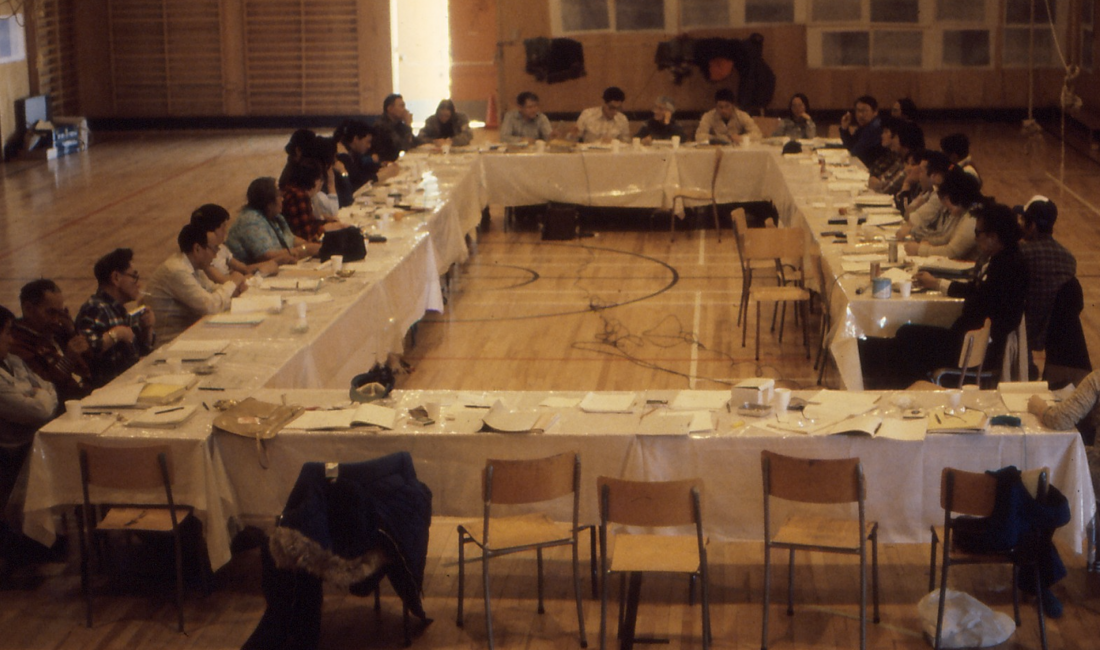
Committee for Original Peoples’ Entitlement (COPE)
 On January 28, 1970, in response to increasing oil and gas exploration and other pressures, a group of Inuvialuit elders and youth came together to form the Committee for Original Peoples’ Entitlement (COPE) to represent the interests of the Indigenous people of the western Arctic. COPE feared that unless action was taken they would have no input in resource development. They were also concerned that most of the benefits from any development would flow south, with Indigenous people benefitting little.
On January 28, 1970, in response to increasing oil and gas exploration and other pressures, a group of Inuvialuit elders and youth came together to form the Committee for Original Peoples’ Entitlement (COPE) to represent the interests of the Indigenous people of the western Arctic. COPE feared that unless action was taken they would have no input in resource development. They were also concerned that most of the benefits from any development would flow south, with Indigenous people benefitting little.
COPE identified its main objective was to provide a united voice for all original people of the Northwest Territories and to work towards the establishment and realization of Indigenous people’s rights.
Within a short period, COPE accomplished many things. It organized the first conference of Arctic native people, helped start the Northern Games, produced weekly radio shows in Indigenous languages, helped preserve the history and heritage of Inuvialuit by interviewing and taping elders, supported Indigenous business ventures and lobbied for adequate housing for low-income families.
But, first and foremost, COPE represented the Inuvialuit in negotiating a land claim agreement with the federal government.
Negotiations between COPE and the Government of Canada began in 1974 and lasted over the course of 10 years. But the collective voice of the Inuvialuit prevailed and on June 5, 1984 the two sides signed the Inuvialuit Final Agreement (IFA). It was the first comprehensive land claim agreement signed north of the 60th parallel and only the second in Canada at that time.
COPE was soon dissolved and Inuvialuit Regional Corporation (IRC) was established with the overall responsibility of managing the affairs of the settlement as outlined in the IFA. Its mandate has always been to continually improve the economic, social and cultural wellbeing of the Inuvialuit through implementation of the IFA and by all other available means.